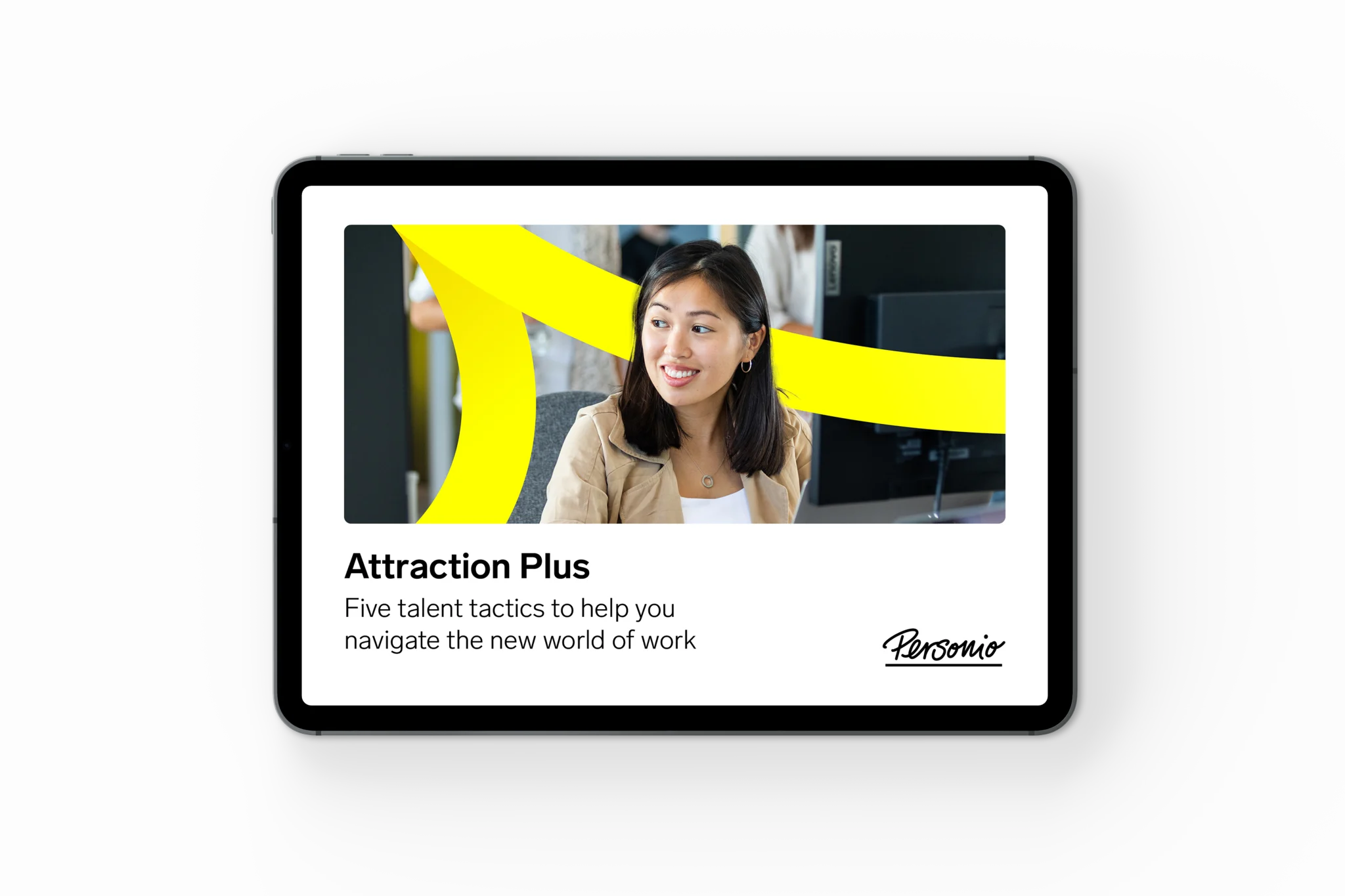How A Signing Bonus Works for Organisations

While competitive salary and benefits entice many candidates to work for your company, the labour market is only getting more competitive. This means you have to offer additional perks to attract talent.
A signing bonus can offer that extra incentive, further enticing prospective employees to choose your organisation over a competitor. If offering a signing bonus is right for your company, this guide shows you how they work and what you need to know before implementing them as part of your recruitment strategy.
Key Facts
Signing bonuses are extra financial incentives received when a candidate officially joins the company.
Companies offer signing bonuses to attract higher quality candidates to join them over the competition.
Offering signing bonuses can help fill roles that require more specialised skills or specific experience.
Contents
- 1What Is a Signing Bonus?
- 2How Signing Bonuses Work
- 3Why Do Companies Offer a Signing Bonus?
- 4Sign-On Bonus UK: How Much Is the Average Signing Bonus?
- 5When Can You Negotiate a Signing Bonus in the Employment Contract?
- 6Strategies for Negotiating a Signing Bonus
- 7Frequently Asked Questions About Signing Bonuses in the UK
- 8Offer the Best To Get the Best
What Is a Signing Bonus?
A signing bonus, sometimes called a hiring bonus, is a one-time lump sum payment at the start of a new employee’s contract. Businesses offer these bonuses to high-quality prospects to entice them to apply. Signing bonuses can serve as a one-time increase in their wage at the start of their employment or stock options.
How Signing Bonuses Work
In exchange for signing a work contract, the new employee will receive financial compensation beyond their agreed-upon wage. These arrangements are usually kept confidential. A bonus can be as much as 10% or more of the employee’s base salary, but this amount varies based on the industry you operate in and your hiring goals.
Employees typically receive the money when they sign their employment agreement, but some companies may have alternate structures. For example, some may pay this amount over the employee’s first year in the position.
Why Do Companies Offer a Signing Bonus?
Granting a financial incentive can help improve job seekers’ interest in your company. Here’s how a signing bonus can help you retain top talent.
To Attract Employees With Specific Skill Sets
Occasionally, a role will open within your company that requires more specialised knowledge. Candidates with niche expertise are in higher demand and lower supply, resulting in higher wages and more desirable benefits to draw them in.
A signing bonus can push a potential employee to work for you rather than for a competitor. Alternatively, if someone migrates from a similar position in another company, it can compensate for any benefits lost from their old company to yours.
It’s a Cost-Effective Way To Appeal to Good Talent
Attracting top-tier talent involves offering higher wages and competitive benefits, but the best package isn’t always feasible for your company.
A signing bonus avoids ongoing, potentially yearslong commitment to programmes and schemes you cannot afford because it’s a one-time payment.
They Make You More Attractive as an Employer
One of the most important reasons to implement a signing bonus as part of an employee’s contract is your competition. These bonuses have become more commonplace in many industries due to the lessened supply within the labour market.
If a direct competitor offers an initial hiring bonus and you don’t, they have an advantage in attracting the best minds in your industry.
Attraction Plus: A New Era of Talent Attraction & Retention

In our latest whitepaper, we outline the five laws governing a new era of talent attraction and retention. Download it to learn more.
Download Our Guide HereSign-On Bonus UK: How Much Is the Average Signing Bonus?
A lump sum signing bonus can range from a few hundred pounds to £5,000 or more. The actual amount fluctuates between industries, companies and positions, so calculating how much you should offer is difficult.
There has been a distinct increase in the number of companies offering signing bonuses and the amount of those bonuses, especially among engineers, pharmacists, drivers and in social careers.
When Can You Negotiate a Signing Bonus in the Employment Contract?
Some businesses will advertise their signing bonus in the job descriptions to help narrow a candidate’s choice. If that’s the case, then negotiating for more is often unnecessary. But if a bonus isn’t advertised or a candidate would like a higher amount, they’ll most likely negotiate after they’ve received an official offer. Typically, the hiring manager will start the conversation, but the candidate might broach the topic if their skills are in high demand.
Strategies for Negotiating a Signing Bonus
Negotiating a signing bonus differs from your typical negotiations with an employee. Because these bonuses are often offered to people with invaluable skills and experience, they have more bargaining power. As a result, it’s essential to enter this situation prepared with strategies that keep the proceedings fair and amicable.
Know the Standard Rate
Other companies within your industry offer signing bonuses, likely for the same position you need to fill. Researching the amount they provide gives you an idea of how valuable the candidate is, creating a precise starting point for the negotiation process.
Determine the Employee’s Expectations
It’s crucial to begin negotiations by determining the amount the new employee hopes to get as a signing bonus. Their answer may be much higher than you’re willing to pay, but that doesn’t mean they’re not willing to compromise.
Outline the Other Benefits You Offer
Explaining the other schemes employees will receive working for you can make their signing bonus expectations more flexible. However, exercise caution if they’re coming from another company. You won’t know what a competitor offered in their benefits package, and yours might lack something the candidate had in their old position.
Missing or lesser benefits aren’t likely a dealbreaker, but they can increase the amount the new hire expects from their signing bonus.
Offer a Range
Before signing a bonus negotiation, you should assess your business’s finances and determine how much you can comfortably pay. With that information in mind, you know the amount that’s a dealbreaker and the lower limit that’s reasonable for the position’s responsibilities.
Define Goals & Link Them to Bonus Payouts

Make your employees’ development visible by defining and tracking both qualitative and quantitative targets. If targets are linked to bonus payments, results are automatically transmitted to payroll.
Find out moreGive Them Time To Consider Your Offer
Don’t require potential new employees to accept your offer (or counteroffer) immediately. Giving them time to consider and accept the final signing bonus on their terms helps ensure they join your staff with no regrets. Employees assured of joining a company are more likely to stay long term.
Frequently Asked Questions About Signing Bonuses in the UK
How Does a Signing Bonus Work?
The employer offers extra financial support in exchange for a candidate agreeing to work for them. This incentive can be a lump sum added to their first pay packet or paid out over time. For some organisations and in some industries, paying out a signing bonus in stock is acceptable as well.
How Much Is the Average Signing Bonus?
The average signing bonus varies between industries and companies. They typically offer between a few hundred pounds to £5,000 or more.
Are Signing Bonuses Paid Immediately?
A lump sum signing bonus is often paid once the employee receives their first pay packet. This may change depending on your company’s policies or your industry standard.
Does Everyone Get a Signing Bonus?
Candidates with high-demand skills are typically the people who are offered signing bonuses.
When Should You Negotiate a Signing Bonus?
Signing bonuses should be negotiated after you’ve given the employee an official job offer.
Offer the Best To Get the Best
One of the best ways to recruit top talent, and to get them on board, is to offer a seamless candidate experience. That requires an excellent talent management software, like Personio, to help you streamline the entire process.
Using Personio, you can post jobs, intake candidates, interview them and run an automated and seamless recruitment process from start to finish. Then, you can send and sign offers and turn candidates into employees in a single click. Speak with an expert to learn more today.
Disclaimer
We would like to inform you that the contents of our website (including any legal contributions) are for non-binding informational purposes only and does not in any way constitute legal advice. The content of this information cannot and is not intended to replace individual and binding legal advice from e.g. a lawyer that addresses your specific situation. In this respect, all information provided is without guarantee of correctness, completeness and up-to-dateness.

